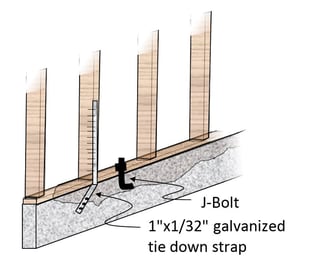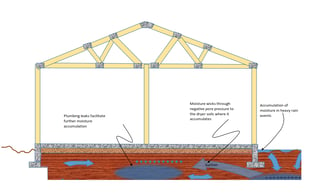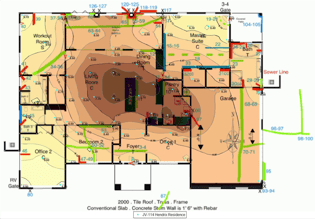.png?width=700&name=The%20Secret%20Sauce%20of%20AZFS%20Engineering%20Success%20Blog%20Banner%20(2).png)
I read the other day on a competitor’s website how they try to extol free home inspections as a virtue rather than admitting they do not have the skill or the will to engage in a thorough analysis. They quote the Joker in Dark Knight “If you are good at something, never do it for free.” We totally agree… on top of that we quote Stephen King, “You pay for what you get, you own what you pay for ... and sooner or later whatever you own comes back home to you. “
They elucidate their investigation process as:
- Look at the sign of stress (but not necessarily recorded on the floor plan)
- Draw up a floor plan to scale on a cad program (table stakes)
- Take elevation readings using a Zip Level (something we gave up on long ago for its inaccuracy in hot weather areas)
- Develop a repair plan (How? What guidelines? Just putting piers in the low areas?)
Well, that’s not too bad. It's 3 ½ out of 17 things that need to be considered. But, hey! It’s free, so it’s a bargain. For problems with such a minimalistic investigation, see my blog series on the Secret Sauce of Arizona Foundation Engineering Success. In particular, the second why…. Accuracy. (https://www.foundationaz.com/blog/sample-how-to-post-2-0) Here I go into more detail on why it is necessary to take into account all 17 items. Also, see my blog on what those 17 items consist of. (https://www.foundationaz.com/foundation-inspections) Does this contractor utilize any recognized engineering standard such as a level B investigation from the Foundation Performance Association, the Post Tensioning Guide… or any recognized engineering investigation process at all? See my blog on recognized processes (https://www.foundationaz.com/blog/foundation-inspection-guidelines)
They try to somehow say that it’s better to have an inspector doing the investigation as opposed to a salesman. We Agree! We never have our salesmen do anything more than a minimal precursory level A investigation (as defined by the Foundation Performance Association) since there are serious conflicts of interest with commissioned salespeople gathering data, analyzing the data, reaching conclusions making recommendations, and designing structural specifications. See my blog series on foundation repair investigation ethics (https://www.foundationaz.com/integrity-ethics) The irony of this contractor’s claims is not lost on me…. since their salesmen are their inspectors!
They also go on to opine that there is some ethical problem with an in-house engineering team. And go on to say that their process uses outside engineers (all located in California). These engineers’ only function is to verify pile spacing and produce a calculation to support it for permitting. These engineers do not engage in the initial data gathering, analysis, conclusions, recommendations, or designs based on those earlier steps. If they did, they would need to drive to Arizona and conduct the investigation themselves (or rely on the salesman’s data and face rubber stamping charges from the board of technical registration that oversees engineers)
In addition, these are all structural engineers, not geotechnical engineers. They are good for calculating spacing and producing plans and calls for permits. They have no experience in soil mechanics, and cannot, even if they come out and do an investigation, still cannot diagnose soil conditions and their interactions with a foundation. In other words, they can’t speak to heave vs. settlement. In fact, they can be disciplined by the State Board for engaging in areas of expertise where they have no training or experience.
So back to the original claim, do in-house engineering teams pose ethical dilemmas? Hardly not, design/build is one of the most common forms of construction and is the preferred method in Europe and many parts of the world. Engineers, by law, cannot receive payment on any basis other than by the hour or by the job. In other words, no incentive pays, unlike a commissioned salesperson. Could they have some bias toward recommending repairs from the culture of the organization they are in? No more than an engineer who gets a steady paycheck from the contractor and would be remiss for biting the hand that feeds them. For more, see my blog on the pros and cons of in-house engineering. (https://www.foundationaz.com/blog/foundation-repair-the-pros-and-cons-of-design-/-build )
There are a bunch of claims out there with foundation repair contractors trying to differentiate themselves from their competitors. I am all for that, as long as the difference is a step up, not a step-down, and is rooted in facts, not conjecture.
So free might be good for something, but hardly more than nothing. And in fact, it could be counterproductive, resulting in misdiagnoses or overspending for the homeowner.
“The bitterness of poor quality remains long after the sweetness of a low price is forgotten.”






